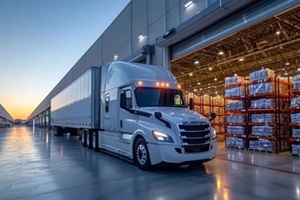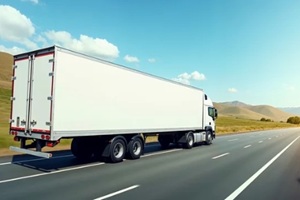
In a complex regulatory environment, complying with relevant federal regulations is an important concern for businesses in the commercial trucking industry. Multiple federal departments oversee commercial trucking compliance, which includes establishing the role that trucking insurance plays in a business’s ability to continue operating legally.
In this article, we define the role of regulatory compliance for commercial trucking companies, including the regulations they need to know and the role insurance plays in helping business owners stay within the letter of the law.
The Importance of Regulatory Compliance in Trucking
Maintaining regulatory compliance impacts businesses significantly in the commercial trucking industry. Federal compliance status dictates their ability to operate legally while protecting their drivers, administrators, and operations from costly damages and liabilities in the event of an accident.
Businesses in the commercial trucking industry that fail to maintain minimum federal and state insurance requirements risk fines, operational delays, and even litigation.
Key Federal Regulations Affecting Commercial Trucking Insurance
Commercial trucking businesses must understand the relevant federal regulations that dictate their insurance and operating requirements under the law, including:
Federal Motor Carrier Safety Administration (FMCSA):The FMCSA provides commercial trucking businesses with information on the minimum liability requirements for their vehicles’ insurance policies, which ranges from $300,000 in liability insurance for general carriers up to $5,000,000 for hazardous chemicals and oil products.
Department of Transportation (DOT): The Department of Transportation requires commercial trucking companies to comply with FMSCA regulations, conducting safety audits to confirm that adequate liability coverage is enforced. Commercial trucking businesses must meet DOT safety scores for proper commercial operation.
Unified Carrier Registration (UCR): The UCR system registers and collects fees from commercial trucking businesses that operate over state lines. Read more about their updated liability requirements for 2025 to learn how the system could impact your operations.
State-Specific Regulatory Requirements
In addition to federal regulations, each state has liability requirements and departmental safety procedures for commercial trucking businesses. Business operators must understand their state’s insurance minimums to pass compliance checks and mitigate risk.
With an expert agency’s help, commercial trucking businesses can customize their policies to meet the needs of their states of operation.
Commercial Trucking Insurance and Liability Coverage
Federal guidelines require different insurance policies depending on the type of cargo the business transports, the size of its vehicles, and more. There are four main types of insurance that commercial trucking businesses need to be aware of:

- Commercial Auto Liability, which covers property damage and bodily injuries sustained in accidents involving the company’s vehicles
- General Liability, which covers injuries unrelated to public vehicle crashes, including loading accidents and other non-driving events on company property
- Cargo Insurance, which covers the goods being transported, including coverage for lost, damaged, and high-risk freight
- Workers’ Compensation, which covers the wages, medical expenses, and rehabilitation costs of company employees injured while performing their job.
While not all carriers need robust policies that cover all types of damage, insufficient coverage in certain areas can lead to legal and financial liabilities.
Role of Cargo Insurance in Regulatory Compliance
Cargo insurance requirements differ by cargo type. For example, specialized, high-value, and high-risk cargo must be insured more to protect the business and other motorists on the road from liability, including the legal cost of being involved in an accident that causes bodily or property damage.
While commercial trucking businesses need cargo insurance to repair or replace lost and damaged cargo, the state requires additional insurance for electronics, hazardous materials, oils, pharmaceuticals, and other high-risk cargo to cover the cost of increased damage and cleanup in the event of a spill.
The Role of Safety and Compliance Programs in Insurance Premiums
Commercial trucking businesses can deploy internal safety and compliance programs to reduce their insurance premiums by lowering their risk level, reviewing their coverage requirements, and working with insurance providers to identify the coverage gaps that increase their risks for accident liability.
Safety and compliance programs also help businesses store documents more securely to pass regulatory inspections, keep their FMSCA records updated, and monitor federal regulation changes to keep employees safer while lowering premiums.
Common Compliance Challenges Faced by Trucking Companies

Federal regulation changes remain an important concern for commercial trucking businesses as they consider local statutes and create custom policies that address their specific challenges, particularly when operating over state lines.
A skilled insurance provider can examine your specific circumstances to address compliance gaps with a policy that covers your insurance needs without extraneous or outdated protection that you no longer need to pay for.
Secure Your Commercial Trucking Insurance with Pro Insurance Group
At Pro Insurance Group, our team specializes in customizing commercial trucking insurance policies for the regulatory compliance requirements of businesses that operate within state guidelines and across state borders. Contact our team today to learn how we can create a personalized insurance solution to reduce your premiums and protect your drivers from liability.
